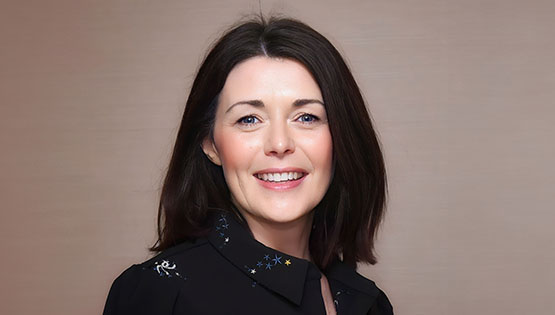Micro-credential
5 weeks
Online - Part-time
5 ECTS
28 April 2025
About
The Innovation in Healthcare* micro-credential from RCSI Graduate School of Healthcare Management is designed to equip healthcare professionals with the essential tools to drive innovation in the complex and rapidly evolving healthcare landscape. Over five weeks, participants will engage with fully online, self-paced interactive material, culminating in weekly live sessions to consolidate learning and facilitate discussion.
Each module is carefully crafted to help you explore your potential as an innovator. You'll learn to identify and define healthcare innovation opportunities, transform ideas into practical solutions, and successfully implement these innovations within healthcare settings. The course also provides valuable insights into navigating healthcare regulations and compliance, helping you bring innovative solutions to life while staying within the regulatory framework.
With a strong emphasis on networking and collaboration, you’ll connect with industry experts, mentors, and peers, gaining a supportive community to help propel your innovation journey.
The development of this micro-credential was funded by the Higher Education Authority Ireland to deliver initiatives around entrepreneurship education.
This course is a Level 9 award on the Irish National Framework of Qualifications.
*Course title is subject to final accreditation. This course was previously known as Entrepreneurship and Innovation in Healthcare and Science.
Explore innovation within the healthcare and science fields
Develop strategies to overcome challenges and identify opportunities
Gain skills to implement across the entire innovation process
Suitable for
This course is tailored for individuals interested in or already immersed in the healthcare and science sectors, including recent graduates, professionals, scientists, and researchers providing foundational knowledge and skills in innovation in healthcare.
What you will learn
Faculty highlight
Register your interest
Course information
- Develop participant capacity to understand key concepts in innovation as applied to or enacted in healthcare (e.g. creativity and entrepreneurship).
- Develop critical understanding of how theory and practice in innovation can be employed to alter working lives and human health (e.g as a catalyst for change helping to save and extend lives).
- Understand and apply learning appropriately to the issues or challenges that arise in planning, delivering or changing health and related sectors by considering types of and opportunities for innovation (e.g. breakthrough, technological incremental and appreciating the phases of innovation).
- Develop competence in evaluating concepts pertaining to innovation with a view to assessing and identifying what works (and what does not) in particular scenarios and why (e.g. viability assessment, value generation).
- Demonstrate the ability to challenge assumptions and question processes in the development of effective policies, procedures, strategy or action as part of the innovation process centred on creativity in a contextually sensitive manner.
- Enact critical understanding and skills necessary to perform as an effective organizational actor with the confidence and ability to work with and lead others in pursuit of better health and wellbeing (e.g. through the process of prototyping).
- Develop critical reflection and reflexivity so as to understand how their specific approach to assessing and managing innovation impacts on the people, processes or structures (e.g. stakeholder needs analysis, assessment of societal value).
- Reflect on how to change practice as an actor/manager/leader in organisational contexts in support of the betterment of human health and wellbeing, and in support of principles linked to relevant components of the UN Sustainable Development Goals (e.g. SDG 3, 8, 9).
Technical induction: 23 April 2025
Live sessions take place at 2pm (Dublin time) on:
- 30 April 2025
- 7 May 2025
- 14 May 2025
- 21 May 2025
Each week is carefully designed to offer a dynamic blend of both direct and indirect synchronous and interactive activities. These include live lectures, exercises, discussions, reading assignments, self-study sessions, formative learning assessments, and summative preparation tasks. This approach fosters an immersive and student-centred learning environment, facilitating the attainment of your learning objectives.
- Week 1: During the first week, participants will be introduced to the realm of innovation within healthcare and science.
- Week 2: Moving on to the second week, participants will explore the theoretical foundations that connect creativity, innovation, and entrepreneurship in healthcare, emphasising their significance and impact.
- Week 3: In the third week, we'll take a more in-depth look at innovation development, covering various types, opportunities, and the innovation process.
- Week 4: As we reach the fourth week, participants will engage in a critical analysis of innovation through the lens of scientific and technological advancements, evaluating its societal value and relevance to stakeholders.
- Week 5: Lastly, in the fifth week, the course will conclude with an assessment and an ongoing feedback process aimed at evaluating the holistic learning outcomes achieved throughout the programme.
We understand that some people may be new to online learning. Our virtual learning environment (VLE) is designed to be intuitive, accessible and easy to navigate. A dedicated course coordinator will be available to you, should you experience any technical difficulties, or have any specific questions relating to learning online. At the start of each course, there will be some short videos to orientate you to the platform and course format.
Assessment methods on our micro-credential courses can include written assignments, continuous assessment, and/or presentations.
Full details on the end of course assessment will be available to students on commencement of the course.
Students may combine credits from micro-credential courses to achieve an academic award at NFQ level 9.
Micro-credentials are awarded based on successfully completing a course and demonstrating the required learning outcomes through assessment. Micro-credentials are designed to be stackable – learners can accumulate credits from other specific micro-credentials to achieve a larger, major award, such as a diploma or degree.
We have two other micro-credential courses in this suite:
On successful completion of the three micro credentials within this suite*, participants may be awarded a Professional Certificate in Innovation in Healthcare (15ECTS).
*Innovation in Healthcare, Design Thinking for Healthcare, Business Planning for Healthcare Innovation.
We are proud to be a recognised University of the National University of Ireland (NUI).
Recognition by ministries and bodies in other jurisdictions must be determined by the individual applicants.
Course title is subject to final accreditation.
Please note: This course was previously known as Entrepreneurship and Innovation in Healthcare and Science.
Admissions
To apply for this micro-credential course, you must:
- Hold a bachelor degree (if you don’t hold a bachelor degree, see the recognition of prior learning pathway outlined)
- Be working in healthcare or a related industry
- Meet the English language requirements (unless exempt): IELTS score of 6.5 or equivalent score on another standardised test (certified proof should be uploaded with your application; see below for exemptions).
If you do not meet the minimum academic requirements above, you may still be eligible to apply through recognition of prior learning (RPL). RPL is the assessment of knowledge, skills and competence previously acquired.
Learning occurs in many contexts which include work, involvement in social and community activities, or learning through life experience generally. RPL does not give credit for experience as such; rather it considers the learning that was acquired as a result of the experience.
RPL may be used to gain:
- Admission to courses/programmes where a person may not have obtained the standard entry requirements.
- Exemptions from course modules which duplicate the learning outcomes an individual has already demonstrably acquired through prior learning.
Exemptions may apply for:
- Applicants who have completed their school or undergraduate studies (three or more years) through English in a country where English is the majority native language
- Applicants who have completed their school or undergraduate studies (three or more years) in an English speaking institution in a country where English is not the majority native language and where an IELTS score of 5 or more was a requirement for admissions to the programme
- Applicants who have been working in a country (three years or more) where English is the majority native language or for an employer where English language is the official language
- Graduates of an RCSI Undergraduate, Masters or Professional Diploma programme in Dublin and Bahrain.
Please note: Certified proof must be uploaded as part of your application.
Course fee: €1,000.
Please note:
- Fee includes all resources and access to our online learning portal.
- RCSI accepts no obligation to refund any fee, or part thereof, in respect of a student who chooses to withdraw from a programme.
- If you choose to withdraw from a programme you are liable for the full fees owed for the seat on that programme.
How to apply
Applications are now open for the upcoming intake. Please begin your application by completing the form below.
Please ensure you attach the following supporting documents with your application:
- Clear copy of a valid passport.
- Copies of your academic transcripts/degree.
- Copy of your CV.
- English proficiency test (if required).
Already begun your application? Complete it via our application portal now.
Continue your application


